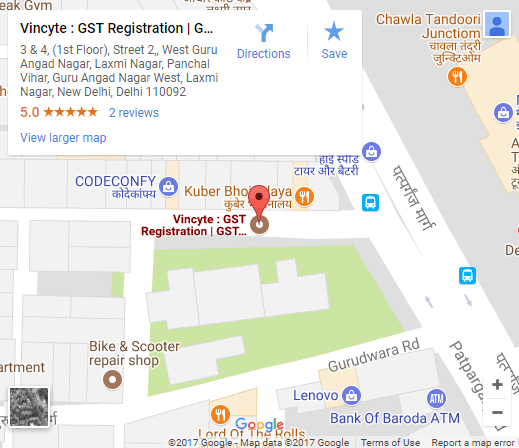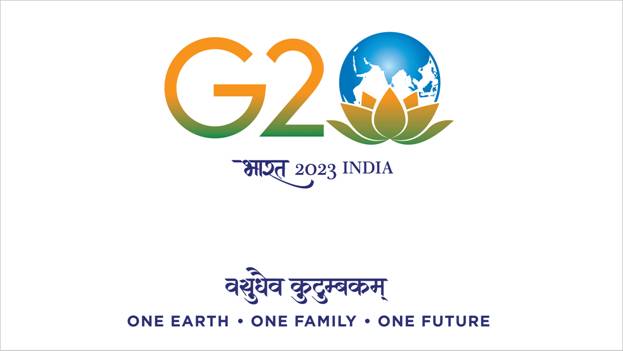The 18th G20 Summit of 2023 has finished in New Delhi, India, marking the country’s first-ever G20 summit. “Vasudhaiva Kutumbakam,” or “One Earth, One Family, One Future,” is the summit’s theme, and it is based on ancient Sanskrit writings and the goal of sustainable development.
Early in the G20 Summit, India was able to achieve consensus on the New Delhi Declaration, which saw the US and EU soften their stance on Russia, in addition to a focus on UN Sustainable Development Goals, climate action and green development initiatives, multilateral financing, digital public infrastructure, artificial intelligence (AI), and international taxation, among other things.
So what will be the Outcomes of G20 Summit 2023 We will discuss this below-
Key Outcomes of G20 Summit 2023:
Prime Minister Narendra Modi’s diplomatic coup: PM Modi sees this summit as a diplomatic watershed moment for India, with its G20 chair serving as a forum to voice the concerns of the Global South. The outcomes of the G20 Summit are critical for the Indian leader personally, as he faces general elections next year.
At the Summit, India was able to use its economic might to rally support from all G20 member countries for a Leaders’ Declaration recognizing the war in Ukraine but not naming an aggressor. Modi, who presided over the Summit, also argued for modernizing global institutions such as the United Nations Security Council (UNSC) to line with changing global dynamics, which was supported by the US.
The G20 Summit was also timed perfectly, following India’s successful moon landing under the Chandrayaan-3 program.
G20 New Delhi Declaration:
All 83 paragraphs of the 2023 G20 New Delhi Leaders’ Declaration were accepted unanimously, attaining a stunning 100 percent consensus, even with China and Russia on board. Notably, there were no footnotes or Chair’s Summary in this declaration, signifying a watershed event.
Multiple agreements relevant to the Finance Track were embedded inside these 83 paragraphs. It also included eight paragraphs about the Ukrainian crisis and its economic consequences. Finance Minister Nirmala Sitharaman emphasized the accomplishments of India’s G-20 presidency, emphasizing a concrete strategy for strengthening multilateral development banks, a clear path for regulating cryptocurrencies, and the deployment of digital public infrastructure to increase financial inclusion. She also emphasized the significance of a faster debt relief strategy for vulnerable nations.
Concerning climate change, the declaration emphasized the importance of raising “US$5.8-5.9 trillion in the pre-2030 period for developing countries” and “US$4 trillion per year for clean energy technologies by 2030” in order to achieve net-zero emissions by 2050. It asked for a significant increase in climate funding, from billions to trillions of dollars.
The African Union has been Admitted as a Member of G20:
Previously, South Africa was the only African member of the G20. The African Union, which represents the 55 countries of the African continent, was granted full membership at the G20 Summit in Delhi, just as the EU is. And, this is one of that Outcomes of G20 Summit 2023.
India has effectively positioned itself as a champion for developing and underprivileged countries, which it hopes to combine with its objectives for a permanent membership on the UN Security Council. In pursuit of this ambition, New Delhi is actively seeking support from the African continent, which controls 55 important votes.
Nigeria, Egypt, and Mauritius were also invited as ‘Guest Countries’ to the G20 conference by India.
Global Leaders Attending the G20 Summit in Delhi Include:
Azali Assoumani, President of the Union of the Comoros and Chairperson of the African Union, attended the meeting. German Chancellor Olaf Scholz, French President Emmanuel Macron, British Prime Minister Rishi Sunak, Turkish President Recep Tayyip Erdoan, Canadian Prime Minister Justin Trudeau, Italian Prime Minister Giorgia Meloni, South Korean President Yoon Suk Yeol, and Brazilian President Luiz Inácio Lula da Silva were among those in attendance.
The summit was notable for the absence of Chinese President Xi Jinping and Russian President Vladimir Putin. Instead, China was represented by Premier Li Qiang, while Russia was represented by Foreign Minister Sergey Lavrov.
The India – Middle East – Europe Economic Corridor (IMEC):
IMEC was established during the G20 Summit in New Delhi by a Memorandum of Understanding (MoU) signed by the governments of India, the United States, Saudi Arabia, the European Union, the United Arab Emirates, France, Germany, and Italy. IMEC is envisioned as a transportation network that includes railways and maritime lines. Its principal goal is to foster economic development by promoting integration among Asia, the Arabian Gulf, and Europe. It was the very important Decision in Outcomes of G20 Summit 2023.
While specifics are still being worked out, this project is part of the Partnership for Global Infrastructure Investment (PGII), a Western-led initiative to fund infrastructure projects around the world. The PGII seeks finance for key infrastructure improvements such as roads, ports, bridges, and communication networks, with the overriding goal of improving global trade and cooperation.
While no leader specifically mentioned China, it is clear that the IMEC corridor aspires to be a viable alternative to China’s Belt and Road Initiative (BRI), which has steadily established global connectivity links with the Chinese market through extensive shipping, rail, and road networks since its inception ten years ago.
Climate Action:
Despite a United Nations report calling the phase-out of fossil fuels “indispensible” for achieving net-zero emissions, leaders at the G20 Summit failed to strike an agreement. The G20 countries jointly account for almost 80% of world emissions. The inability to reach an agreement on this critical subject casts a pall over planned climate talks, which are slated to begin in November in the oil-rich UAE.
Nonetheless, the G20 agreed to treble global renewable energy capacity and underlined the importance of peaking emissions before 2025. Furthermore, the Declaration noted that keeping global warming to 1.5 degrees Celsius (2.7 degrees Fahrenheit) requires a 43 percent decrease in greenhouse gas emissions by 2030 compared to 2019 levels.
The G20 New Delhi Leaders’ Declaration also included commitments to mainstream Lifestyle for Environment (LiFE), implement sustainable energy transitions, provide sustainable finance, reaffirm the pursuit of SDGs, address plastic pollution, preserve the ocean-based economy, and more. The conference also saw the foundation of the Global Biofuel Alliance (GBA), a new organization aiming at encouraging the development and acceptance of sustainable biofuels, as well as the development of related standards and certification.
On The Sidelines, Bilateral Meetings:
Prime Minister Modi held a series of bilateral discussions with foreign leaders during the G20 Summit in New Delhi in 2023. He symbolically handed over the G20 presidency to Brazilian President Lula da Silva, expressing faith in India’s successor to promote global unity and prosperity. Modi also met with several politicians to discuss matters of mutual interest.
During one significant discussion, Modi expressed India’s grave concern over extremist forces in Canada backing secessionism, encouraging violence against Indian diplomats, and endangering the Indian community there. President Biden emphasized the cooperation between India and the United States, which is based on Mahatma Gandhi’s principle of trusteeship and shared by the two countries.
Russia hailed the G20 Summit under India’s presidency as a “breakthrough,” citing its conclusions as a road map for solving global concerns and demonstrating the Global South’s strength and importance. PM Modi and Turkish President Erdogan also discussed improving commercial and infrastructural partnerships.
Several international leaders congratulated Modi on the success of Chandrayaan-3 during the G20 Summit. Japanese Prime Minister Kishida praised PM Modi for the “Mission LiFE” concept. Ursula von der Leyen, President of the European Commission, argued for the development of a new global framework for addressing artificial intelligence dangers, highlighting the necessity of protecting society and supporting responsible AI investments.
Furthermore, G20 leaders paid their tribute to Mahatma Gandhi at his memorial, Rajghat, including US President Joe Biden, UK Prime Minister Rishi Sunak, and UN Secretary-General Antonio Guterres.
Get In Touch

Contact Us
New Business


